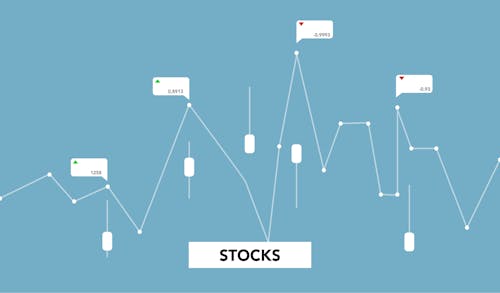
 Image Source: Pexels
Image Source: Pexels
The UK’s benchmark FTSE 100 stock index opened higher on Wednesday, driven by gains in energy and industrial metal mining shares, while JD Sports declined after the Nike retailer maintained its annual outlook unchanged despite reporting a first-half profit beat. Shares of major oil and gas companies increased by 2.5% as oil prices surged by over a dollar, driven by growing concerns that the tensions in the Middle East could escalate, potentially disrupting crude production from the region, after Iran’s largest-ever military strike against Israel. The industrial metal miners rose by 1% due to higher copper prices, bolstered by improved demand prospects following China’s stimulus measures. The blue-chip FTSE 100 index is up a modest 0.28.% heading into the close.The rise in crude oil prices was reflected in the 2.8% and 2.6% increases in shares of the two major British oil companies, Shell and BP. After Iran launched its biggest-ever military attack against Israel, worries that tensions in the Middle East may worsen and perhaps affect the region’s oil flow caused oil prices to soar. BP and Shell were two of the blue-chip FTSE 100 index’s top percentage gainers. Following a more than 5% increase in Tuesday’s trade, U.S. West Texas Intermediate (WTI) and Brent crude futures saw 2.2% and 2.4% increases, respectively. Further escalation is more than likely, according to the PVM analyst, and the likelihood of attacks by Iran or its allies, akin to the September 2019 strike on Saudi oil processing facilities, or the closing of the Strait of Hormuz, is growing. These developments would sharply raise oil prices. Ithaca Energy, Serica Energy, Tullow Oil, and EnQuest all saw gains of 1.9% to 3.2% in their shares, while Harbour Energy, the biggest British producer of oil and gas in the North Sea, saw a 3% increase to.On the negative side of the ledger, JD Sports’ stock was the biggest loser on the FTSE 100 index, falling 2.8% to 145.3p. The British sportswear retailer anticipates hitting its yearly profit goal, but the strengthening of the pound versus the US dollar and the euro will cause a £20 million foreign exchange headwind in the second half of the company’s operations. Due in part to its multi-brand approach, the corporation exceeded market forecasts for first-half profit, even if flagship retail shoe brand, Nike, is still having difficulties. Following poor quarterly results, Nike withdrew its annual outlook and issued a warning about Christmas sale reductions. According to Peel Hunt analysts, JD Sports has managed to steer clear of Nike’s poor performance, and the company’s range expansion has improved profits. Nevertheless, as fewer consumers ventured outside during the Olympics, they saw weak spots in the UK and Europe. The underlying problem is the poor performance of clothing sales, which is exacerbated by the unfavourable early summer weather. Previous to this most recent dip, the stock had already dropped by almost 10% this year.
Technical & Trade ViewFTSE Bias: Bullish Above Bearish below 8225
More By This Author:FTSE Whipsaw Start To The Quarter As Geopolitical Risk RisesFTSE Up On The Quarter Down On The MonthSP500 & US500 Daily Trade Plan – Friday, September 27
















